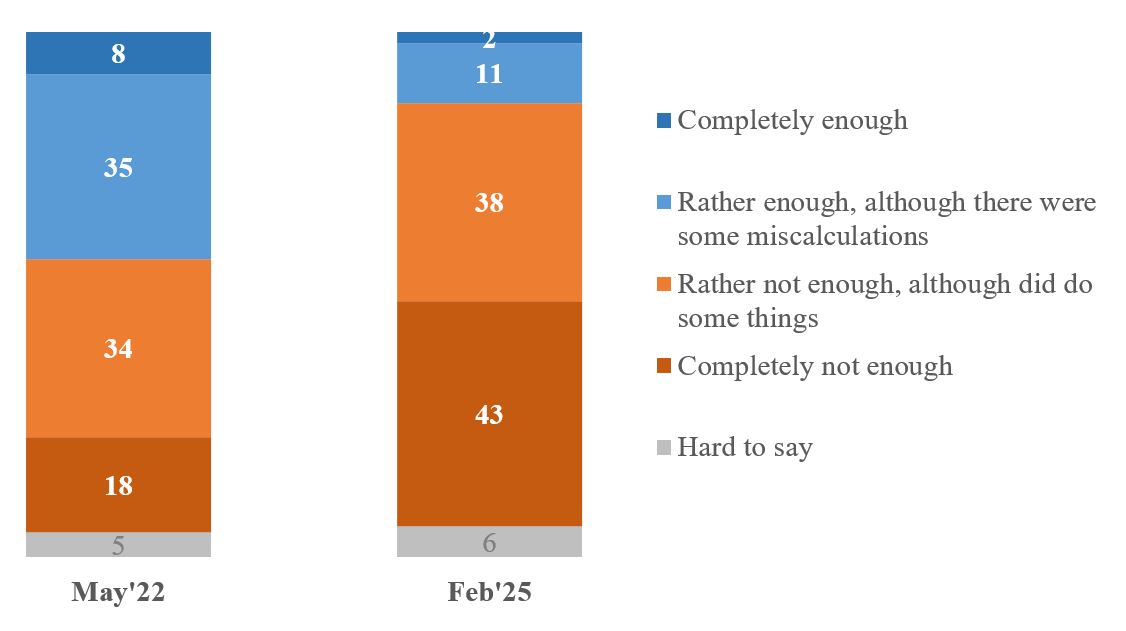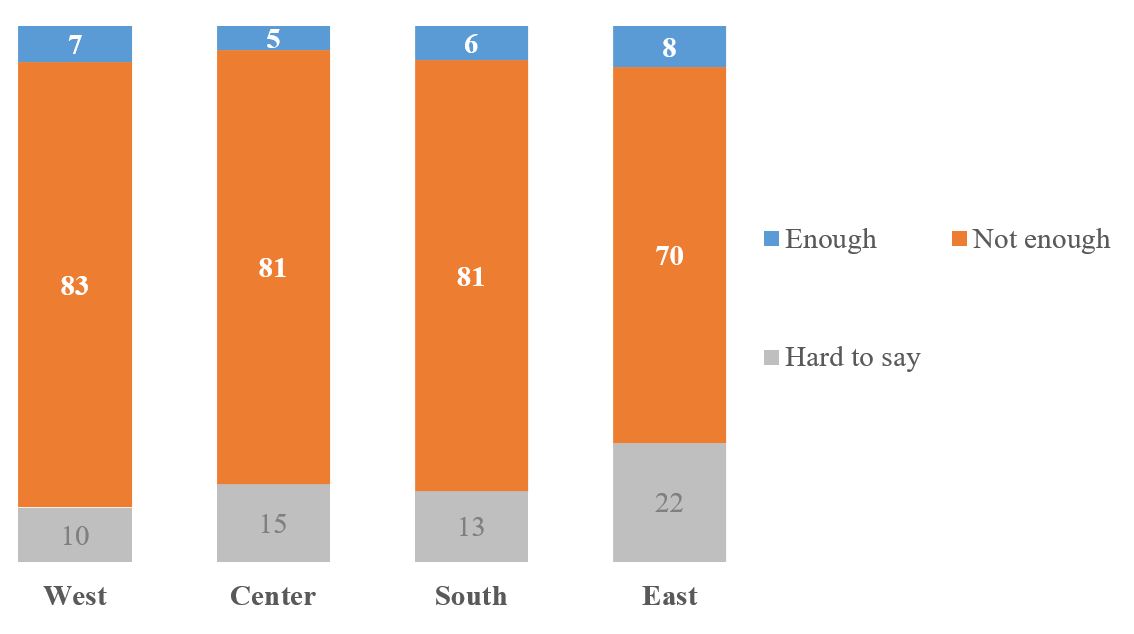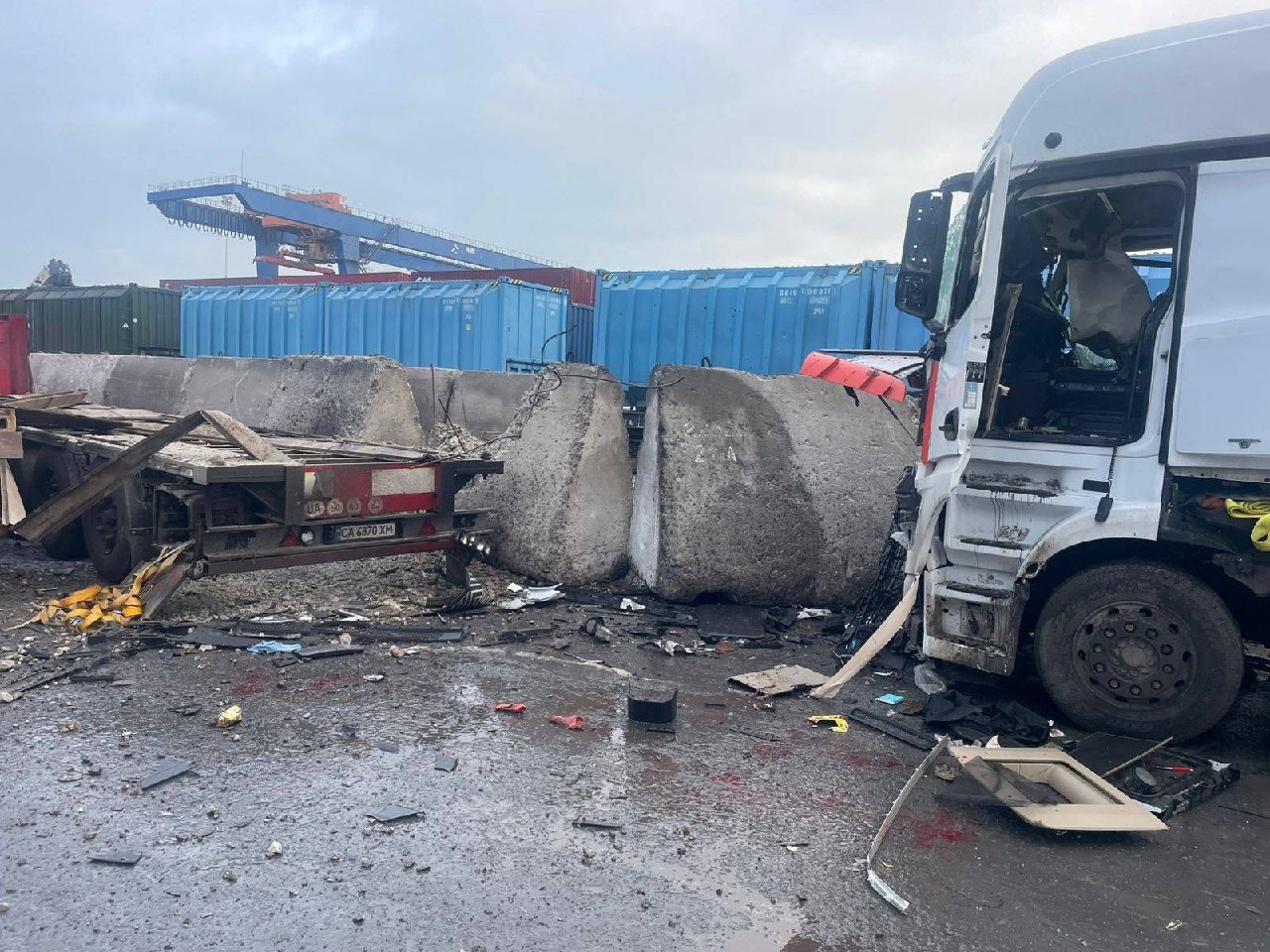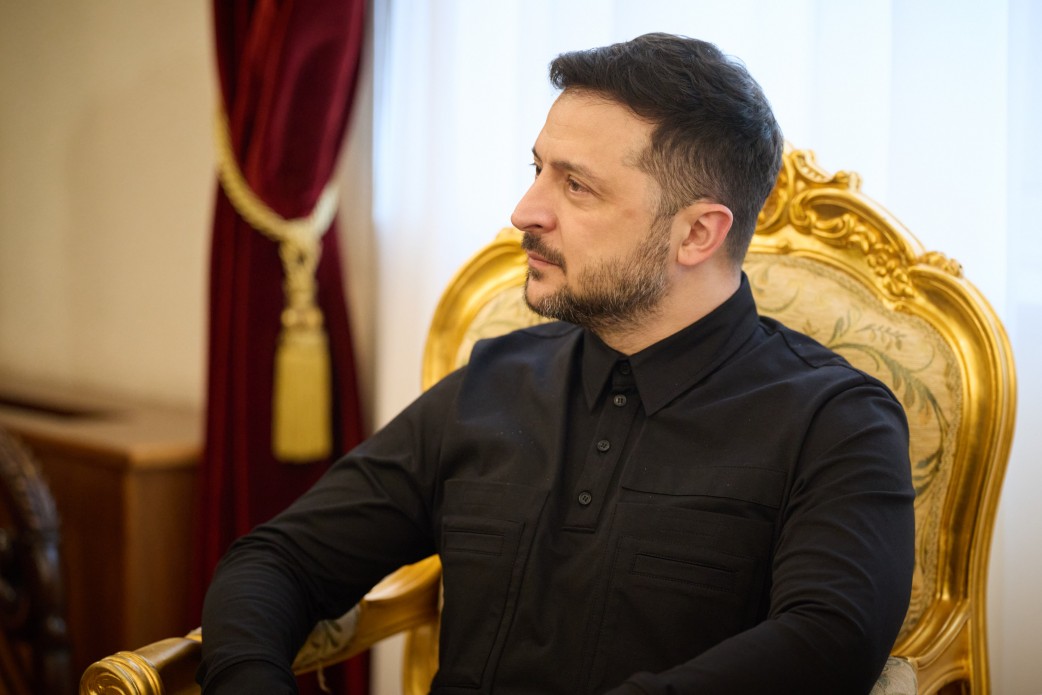Only 13% of Ukrainians believe that sufficient efforts were made to prepare for a full-scale invasion by Russia, according to the results of a nationwide public opinion survey conducted from February 2-6 by the Kyiv International Institute of Sociology (KIIS). This is a significant drop from May 2022, when 43% of Ukrainians shared this belief.
"As can be seen, both in May 2022 and in February 2025, Ukrainians mostly believed that Ukraine had done more or less than enough to prepare. Moreover, critical assessments even increased – from 52% in May 2022 to 81% in February 2025, there were more people who believed that the efforts made were insufficient (of these 81%, 43% believe that the efforts were completely insufficient, and the remaining 38% believe that the efforts were rather insufficient, although they admit that something was done). They believe that Ukraine has made enough efforts – 13% (in May 2022, there were 43%)," the press release from the research results stated.

Regionally, in all regions of Ukraine, the majority of the population considers the efforts made by Ukraine to be insufficient.

Respondents who answered that Ukraine was rather or absolutely unprepared for the invasion were asked about what they believed to be the possible reasons. A relative majority of them (41%) blame the government, which they believe did not make the necessary efforts for preparation.
Respondents also mentioned that the population itself did not believe in or prepare for the invasion (32%), the influence of pro-Russian forces and agents (21%), insufficient support from the West (16%), and that Russia had too many resources (15%). Fewer respondents mentioned that the military command failed to make adequate efforts (13%), and that it was objectively impossible to prepare and account for everything in such a short time (10%).
In all regions, there is no clear consensus, and respondents mentioned a varied palette of explanations, KIIS notes.
During the survey, 1,000 respondents aged 18 and older in all government-controlled regions of Ukraine were interviewed via telephone (CATI). Under normal circumstances, the sampling error at a 0.95 confidence level, taking into account the design effect of 1.3, would not exceed 4.1% for indicators close to 50% and 1.8% for indicators close to 5%. However, in wartime, there is an additional systematic bias.
KIIS also reminds that ahead of the full-scale invasion, 49% of Ukrainians considered the possibility of a full-scale Russian invasion to be realistic, while 39% believed that an invasion would not occur. Residents of the southern and eastern parts of the country were more likely to believe the invasion would not happen.





















